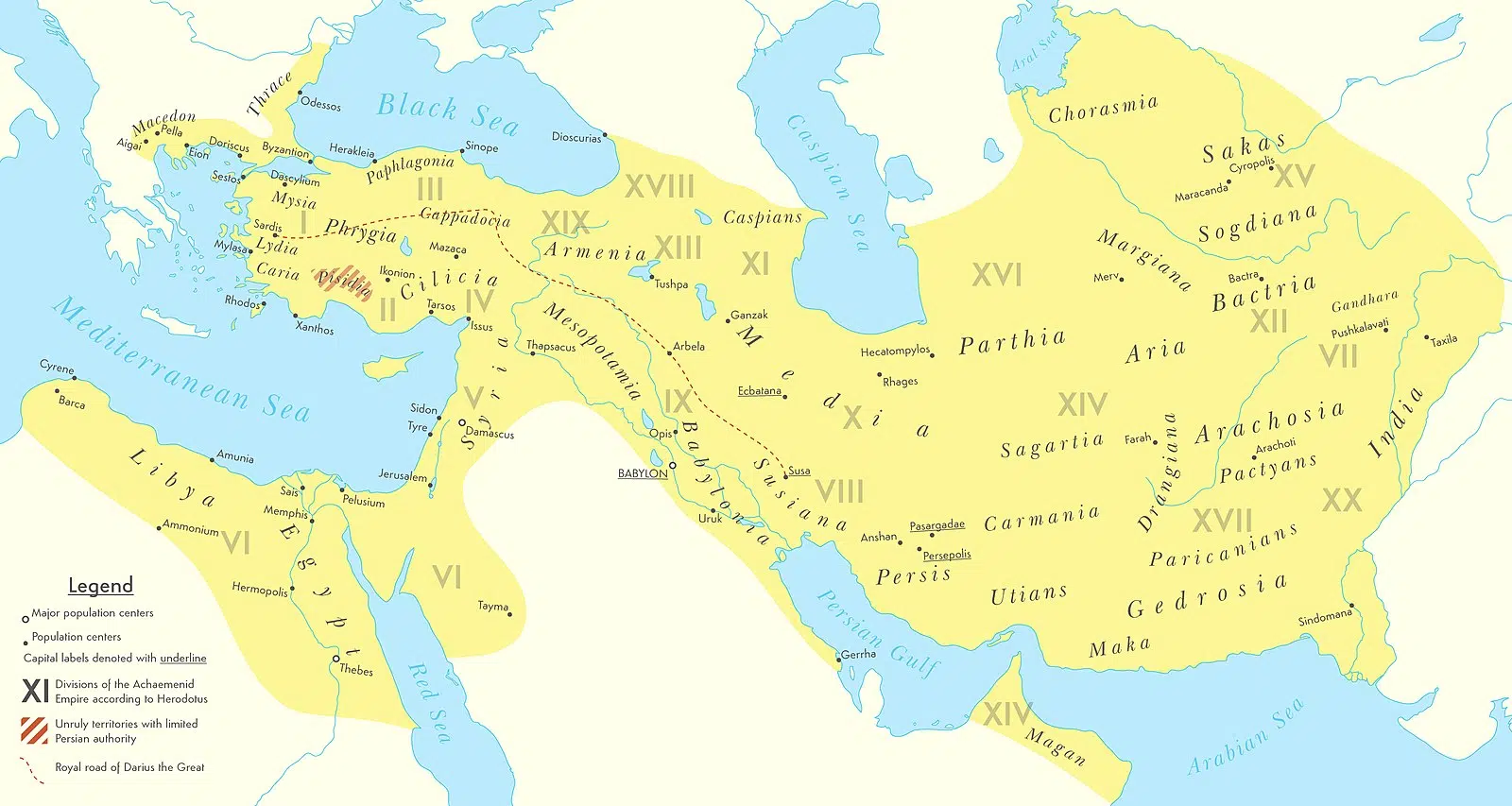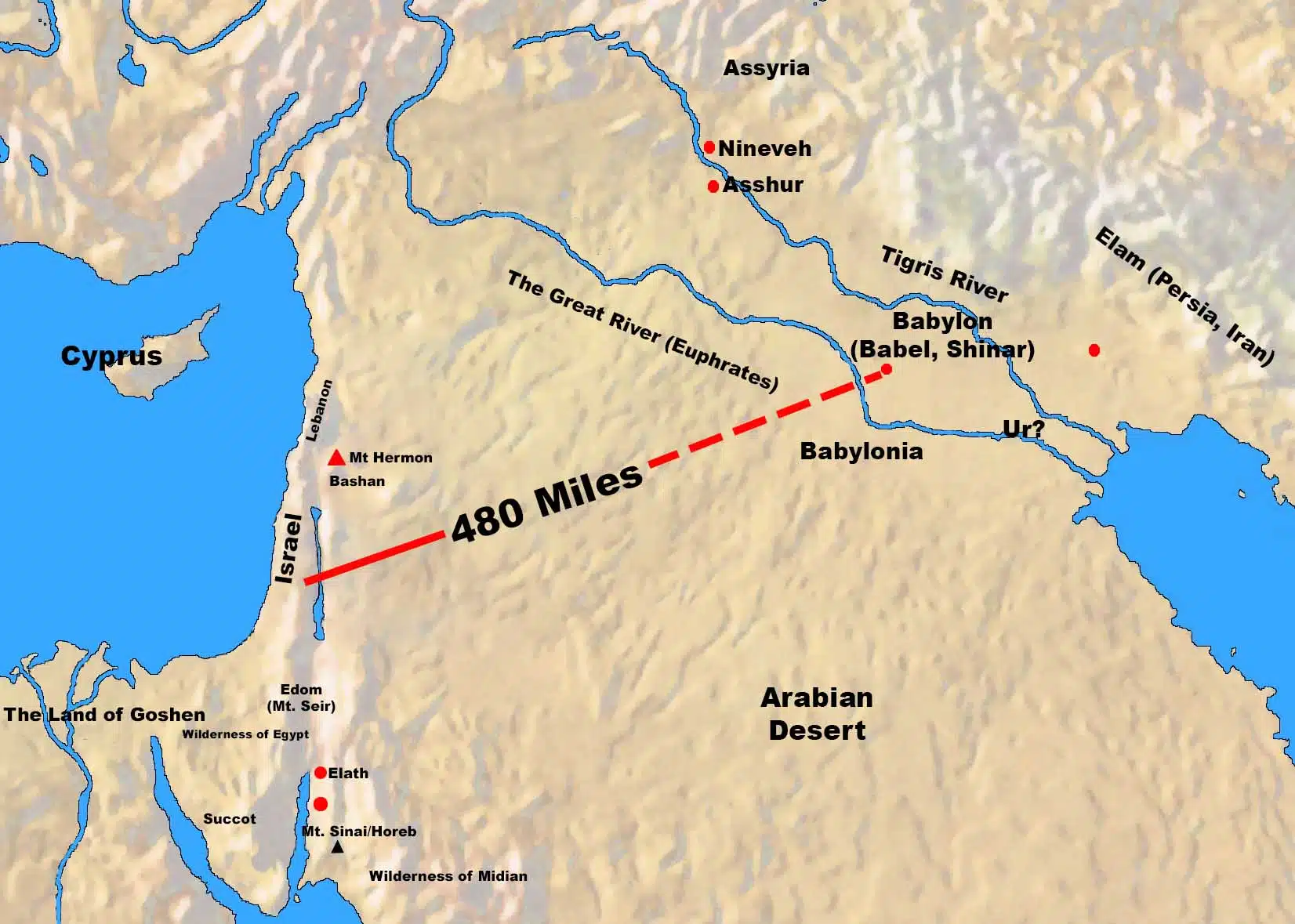The prophet Zechariah receives the word of the LORD in the eleventh month of the second year of King Darius of Persia.
In the previous section, the LORD gave Zechariah a message for the people of Judah. He asked His covenant people to abandon their wicked deeds and return to Him, so he could return to them, consistent with His covenant promise. God also warned them not to imitate their forefathers who refused to obey His covenantal laws and consequently fell under His judgment (vv. 1–6). That was the prophet’s first oracle, which he received “in the eighth month of the second year of Darius,” the fourth Persian king (October-November 520 BC).
In this section, the text introduces the reader to a second date in which the prophet received a sequence of visions (Zechariah 1:7–6:8). It was on the twenty-fourth day of the eleventh month, which is the month Shebat, in the second year of Darius (vs 7). The date here corresponds to February 15, 519 BC, in our modern calendar. The term Shebat was the Babylonian name of the eleventh month. (See Calendar) The Bible mentions it here because the Judeans adopted the Babylonian calendar after the exile.
The man Darius was the fourth king who ruled Persia. Like Haggai, Zechariah dated the prophecy according to the regnal year of the Persian king because there was no king in Judah during that time (Haggai 1:1; Daniel 2). Thus, on February 15, the word of the LORD came to Zechariah, the prophet (vs 7).
The word of the LORD refers to Yahweh’s revelation (1 Kings 6:11; 16:1; Zechariah 1:1). He disclosed His will to Zechariah and asked him to pass it on. Zechariah was God’s messenger, a prophet. He had a particular calling to see or hear what God was saying, live it out in his life, and proclaim it to the people around him.
The prophet Zechariah was likely from a prominent family. He was the son of Berechiah, a name that means “Yahweh blesses.” His grandfather’s name was Iddo, meaning “his time.” The book of Nehemiah lists Iddo among the priests who returned to Jerusalem with Zerubbabel in the first wave in 538 BC (Nehemiah 12:4). Assuming this is the same Iddo, that means that Zechariah came from a priestly heritage. God gave him eight visions on the night of February 15, 519 BC. That night was significant for the prophet of God.
Biblical Text
7 On the twenty-fourth day of the eleventh month, which is the month Shebat, in the second year of Darius, the word of the LORD came to Zechariah the prophet, the son of Berechiah, the son of Iddo, as follows:
Check out our other commentaries:
-
2 Kings 18:13-18 meaning
On the heels of several military victories, Sennacherib the King of Assyria sends his trusted advisor “The Rabshakeh” (the chief cup-bearer) to Jerusalem with the...... -
Genesis 3:1-5 meaning
The serpent approaches Eve and tempts her to disobey God....... -
Deuteronomy 7:12-16 meaning
Moses tells the Israelites that obedience to God’s precepts leads to blessings. These blessings will be expressed in population growth and prosperity such as abundance...... -
Ecclesiastes 5:4-7 meaning
It is foolish to make careless oaths to God. Keep your word. ...... -
Romans 1:7 meaning
After introducing himself, Paul addresses his audience: all of the believers in Rome.......





